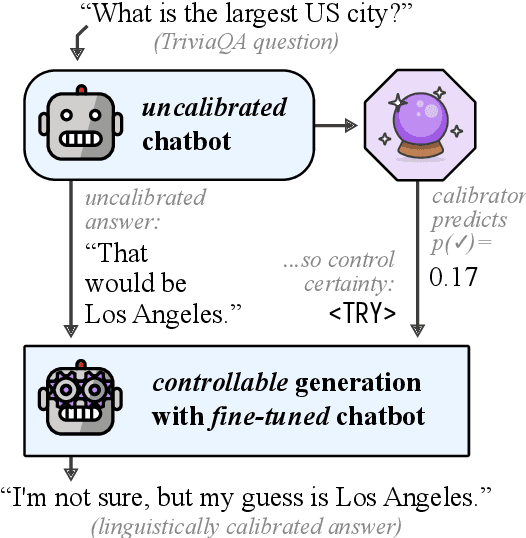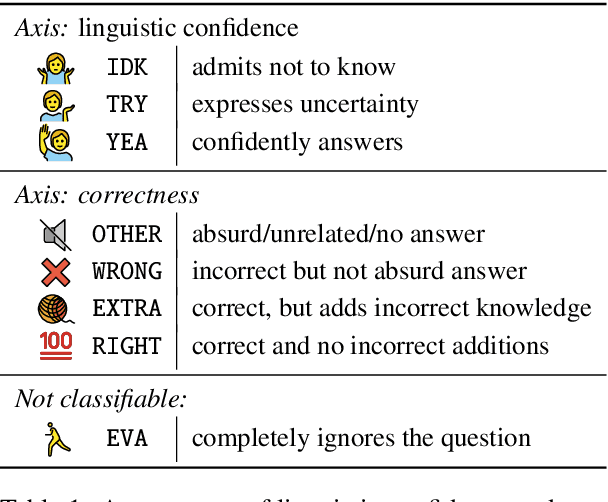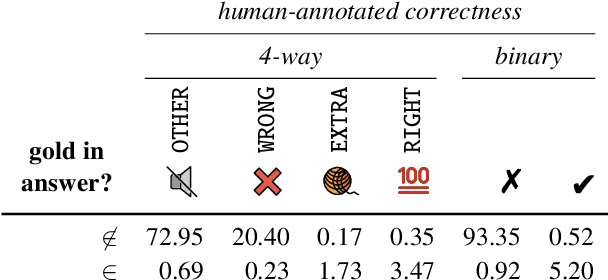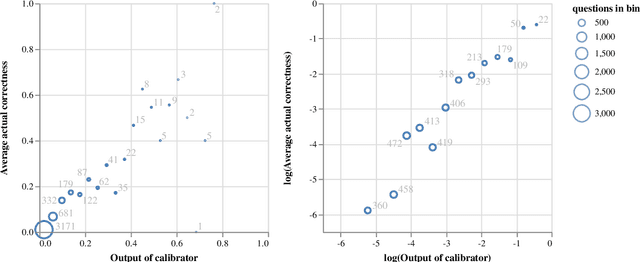Linguistic calibration through metacognition: aligning dialogue agent responses with expected correctness
Paper and Code
Dec 30, 2020



Open-domain dialogue agents have vastly improved, but still confidently hallucinate knowledge or express doubt when asked straightforward questions. In this work, we analyze whether state-of-the-art chit-chat models can express metacognition capabilities through their responses: does a verbalized expression of doubt (or confidence) match the likelihood that the model's answer is incorrect (or correct)? We find that these models are poorly calibrated in this sense, yet we show that the representations within the models can be used to accurately predict likelihood of correctness. By incorporating these correctness predictions into the training of a controllable generation model, we obtain a dialogue agent with greatly improved linguistic calibration.
 Add to Chrome
Add to Chrome Add to Firefox
Add to Firefox Add to Edge
Add to Edge